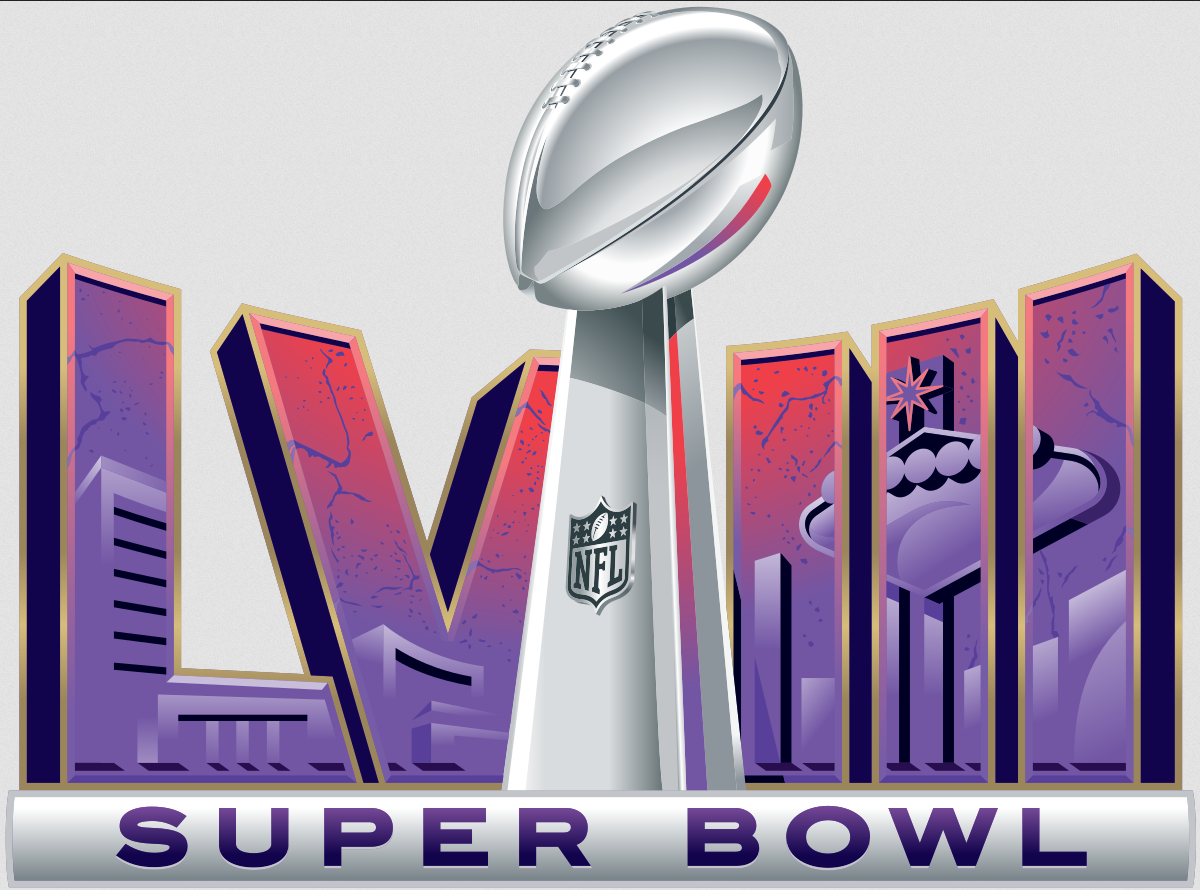The National Football League (NFL) has implemented a new policy limiting the number of sports betting commercials during Super Bowl LVIII to just three. This decision reflects the league’s cautious approach to the burgeoning sports betting market, balancing the desire for advertising revenue with concerns about the potential impact of gambling on its audience. The move is also in response to feedback from fans and stakeholders who have expressed the need for moderation in the exposure to sports betting promotions during one of the most-watched television events in the United States.
Analyzing the Impact of Limited Sports Betting Ads on Super Bowl LVIII Viewership
Just Three Sports Betting Commercials Will Air During Super Bowl LVIII
In a world where advertising is as much a spectacle as the events it punctuates, the decision to limit sports betting commercials during Super Bowl LVIII to just three spots is a bold move that speaks volumes about the current climate of sports viewership and responsible marketing. This strategic choice will not only reshape the advertising landscape during one of the most watched events in the world but also has the potential to enhance the overall viewer experience, setting a precedent for future broadcasts.
The Super Bowl, an event synonymous with both football and commercials, has long been the ultimate platform for advertisers to showcase their most creative and high-budget spots. However, the inundation of sports betting ads in recent years has raised concerns about the impact on viewers, particularly younger audiences and those susceptible to gambling addictions. By limiting the number of these commercials, the NFL is taking a stand, prioritizing the welfare of its audience over the lucrative allure of ad revenue.
This decision is not only a win for consumer protection but also for the quality of the viewing experience. With fewer sports betting commercials, the stage is set for a more diverse array of advertisements, allowing other industries to shine and providing a reprieve from the relentless push to gamble. This could lead to a more enjoyable and less repetitive commercial lineup that keeps viewers engaged during breaks in the action.
Moreover, the scarcity of sports betting ads could actually enhance their impact. With only three slots available, these commercials are likely to be the cream of the crop, featuring the most innovative and memorable content that advertisers can muster. This exclusivity creates a sense of anticipation and prestige around the spots, potentially making them more effective than if they were part of a larger, more diluted pool.
The move to limit sports betting commercials also reflects a growing awareness of the need for responsible advertising in the sports industry. As sports betting becomes more widespread, the responsibility to promote it in a way that does not encourage irresponsible behavior is paramount. By setting a cap on these ads, the NFL is sending a clear message about its commitment to social responsibility and could inspire other leagues and events to follow suit.
Furthermore, this decision could have a positive effect on viewership. Some fans have expressed frustration with the overwhelming number of betting ads in past broadcasts, which can detract from the enjoyment of the game itself. By offering a more balanced commercial lineup, the Super Bowl may retain viewers who might otherwise be turned off by an overemphasis on gambling. This could lead to higher overall ratings and a more positive reception of the event on social media and other platforms.
In conclusion, the decision to air just three sports betting commercials during Super Bowl LVIII is a commendable step that respects the audience and upholds the integrity of the event. It demonstrates a commitment to responsible advertising and has the potential to create a more engaging and enjoyable viewing experience. As we look forward to the big game, it’s clear that this change is not just about reducing the number of ads—it’s about elevating the quality of the Super Bowl spectacle for everyone tuning in.
The Strategy Behind Choosing Just Three Sports Betting Commercials for Super Bowl LVIII
Just Three Sports Betting Commercials Will Air During Super Bowl LVIII
When the whistle blows and the kickoff soars at Super Bowl LVIII, millions will be watching not just for the thrill of the game but also for the spectacle of the commercials. In a surprising twist, the decision to limit the broadcast to just three sports betting commercials is a strategic move that speaks volumes about the current state of advertising and the sports betting industry.
The Super Bowl is a cultural phenomenon that transcends the boundaries of sports, becoming a showcase for some of the most creative and expensive advertisements of the year. Companies vie for these coveted spots, knowing that the eyes of a nation are glued to their screens. However, the restraint shown in limiting sports betting ads is a masterstroke in the art of anticipation and exclusivity.
By choosing to air only three sports betting commercials, the organizers are creating a sense of rarity and importance around these spots. This scarcity not only drives up the value of the advertisements but also ensures that they stand out amidst the sea of other commercials. In a landscape where consumers are bombarded with endless ads, less can indeed be more. The limited slots become a premium, making each ad a must-see event within the event.
Moreover, this strategy is a nod to responsible advertising. With the proliferation of sports betting, there is a growing concern about the potential for problem gambling. By limiting exposure, the NFL is signaling its commitment to promoting a healthy relationship with sports betting. This move is likely to be well-received by audiences who appreciate the balance between entertainment and social responsibility.
The companies lucky enough to snag one of these three spots are presented with a unique opportunity. They have the chance to craft a message that resonates with a massive audience, knowing that they won’t be lost in the noise. This exclusivity allows for a deeper narrative, one that can tell a story or evoke emotion in a way that wouldn’t be possible with a higher frequency of similar ads.
Furthermore, the decision to limit sports betting commercials can be seen as a strategic play to maintain the integrity of the Super Bowl experience. The game itself is an American tradition, and while betting is a part of the sports culture, there is a delicate balance to be struck. By keeping the focus on the game and the traditional elements of the Super Bowl, the NFL ensures that the event remains a family-friendly affair that can be enjoyed by all.
In essence, the strategy behind airing just three sports betting commercials during Super Bowl LVIII is a multifaceted one. It’s a move that enhances the value of the ads, promotes responsible gambling, preserves the integrity of the event, and ensures that the commercials themselves are a talking point. As viewers settle in to enjoy the game, they’ll be treated to a carefully curated advertising experience that reflects the changing landscape of both sports and marketing.
In conclusion, the decision to limit sports betting commercials is a savvy one, reflecting a deep understanding of the audience, the market, and the cultural significance of the Super Bowl. It’s a reminder that sometimes, less is more, and that a well-placed message can have a greater impact than a barrage of noise. As we look forward to the spectacle of Super Bowl LVIII, we can also anticipate the excitement and intrigue that these three exclusive commercials will bring.
Comparing Super Bowl LVIII’s Sports Betting Ad Approach to Previous Years
Just Three Sports Betting Commercials Will Air During Super Bowl LVIII
In a striking departure from previous years, Super Bowl LVIII will feature just three sports betting commercials, a decision that reflects a more cautious and responsible approach to advertising in this burgeoning industry. This change is not only commendable but necessary, as it demonstrates a growing awareness of the impact of sports betting ads on viewers and the importance of promoting gambling responsibly.
To understand the significance of this shift, let’s cast our minds back to previous Super Bowls, where the commercial breaks were often saturated with flashy sports betting ads. These high-energy spots, with their catchy slogans and promises of big wins, were designed to entice viewers into placing bets, often without highlighting the potential risks. The sheer volume of these commercials was overwhelming, and for some, it detracted from the enjoyment of the game itself.
However, this year’s Super Bowl is setting a new precedent. By limiting the number of sports betting commercials to just three, the organizers are sending a clear message: quality over quantity. This move is not only respectful to viewers who may not wish to be bombarded with gambling promotions but also represents a more ethical stance on advertising. It’s a nod to the importance of moderation and the recognition that with the power of advertising comes the responsibility to promote healthy gambling habits.
Moreover, this reduction in sports betting commercials can be seen as a response to the growing concerns about the potential for problem gambling. By airing fewer ads, the Super Bowl is helping to create an environment that is less likely to encourage impulsive betting decisions. This is particularly important during such a high-profile event, where the temptation to gamble can be amplified by the excitement of the game and the influence of social gatherings.
The decision to limit sports betting commercials also aligns with a broader trend towards more responsible marketing practices within the industry. Many sports betting companies are now adopting “responsible gambling” messages within their advertising, emphasizing the importance of setting limits and betting within one’s means. This year’s Super Bowl commercials are likely to reflect this shift, focusing on promoting a more sustainable and conscientious approach to sports betting.
Furthermore, this approach could potentially enhance the viewer experience. With fewer interruptions from sports betting ads, fans can immerse themselves more fully in the game and the traditional, often highly anticipated non-gambling commercials that have become a hallmark of the Super Bowl experience. This balance ensures that the event remains a celebration of sport and entertainment, rather than a platform for excessive gambling promotion.
In conclusion, the decision to air just three sports betting commercials during Super Bowl LVIII is a positive step forward for the industry and for viewers alike. It reflects a maturing market that is beginning to prioritize the well-being of its audience and the integrity of the sport. As we look forward to enjoying one of the biggest sporting events of the year, we can appreciate the efforts being made to ensure that sports betting remains a part of the festivities without overshadowing the spirit of the game. This thoughtful approach to advertising is a win for everyone involved and sets a standard that other sporting events would do well to follow.
The Future of Sports Betting Advertising in Major Sporting Events Post-Super Bowl LVIII
Just Three Sports Betting Commercials Will Air During Super Bowl LVIII
In a world where the roar of the crowd and the thrill of the game are often accompanied by the buzz of betting activity, the decision to limit sports betting commercials during Super Bowl LVIII to just three spots is a bold move that signals a new era in the relationship between sports broadcasting and gambling advertising. This change is not merely a one-off occurrence but a harbinger of a more responsible and measured approach to sports betting advertising in major sporting events moving forward.
Imagine the Super Bowl, an event synonymous with American culture, where families and friends gather around screens, feasting on snacks and soaking in the high-octane action. Now, picture this scene with a significant reduction in the barrage of betting ads that typically punctuate the experience. This isn’t just a hypothetical scenario; it’s the future we’re stepping into post-Super Bowl LVIII. The decision to limit sports betting commercials is a testament to the growing awareness of the need for a balanced approach to advertising that respects the diverse audience, including impressionable young viewers and those susceptible to gambling addiction.
The move to curtail the number of sports betting commercials is a strategic one, reflecting a broader shift in the industry towards sustainability and social responsibility. By self-regulating, the sports betting industry is taking proactive steps to maintain its social license to operate. This restraint demonstrates an understanding that the long-term health of the industry is tied to its public perception and the impact it has on the community at large.
Moreover, this change is likely to enhance the viewing experience for many. With fewer interruptions from betting ads, fans can immerse themselves more deeply in the game’s narrative, the athletic prowess on display, and the sheer spectacle of the event. This isn’t to say that sports betting doesn’t have its place in enhancing the excitement of sports; rather, it’s about finding the right balance between promotion and the purity of the sporting experience.
The future of sports betting advertising in major sporting events post-Super Bowl LVIII looks to be one of greater creativity and subtlety. Advertisers may need to pivot towards more integrated and less intrusive forms of marketing. This could include partnerships with broadcasters that weave betting odds into the commentary in a natural way or the use of digital platforms to engage with bettors directly. These methods can provide a more seamless and less disruptive experience for viewers, while still reaching the target audience of potential bettors.
Furthermore, this shift opens the door for other types of advertisers to reclaim some of the most coveted advertising slots in sports broadcasting. Brands that had been sidelined by the overwhelming presence of sports betting ads can now step back into the spotlight, offering a more diverse array of commercials for viewers to enjoy. This diversification can enrich the advertising tapestry of major sporting events, making the commercial breaks almost as anticipated as the action on the field.
In conclusion, the decision to limit sports betting commercials during Super Bowl LVIII is a forward-thinking move that sets the stage for a more responsible and viewer-friendly approach to advertising in sports. It acknowledges the need for moderation and the importance of considering the impact on all audience members. As we look to the future, we can expect to see a more thoughtful and innovative landscape for sports betting advertising, one that respects the integrity of the game and the well-being of the community. This is not just a win for viewers and the sporting industry, but a triumph for responsible advertising practices that other sectors may well look to emulate.Conclusion: The decision to limit just three sports betting commercials during Super Bowl LVIII reflects a strategic choice to regulate the presence of sports betting advertising during one of the most-watched television events, potentially to avoid oversaturation and to address concerns about the influence of gambling advertisements on viewers.
















+ There are no comments
Add yours